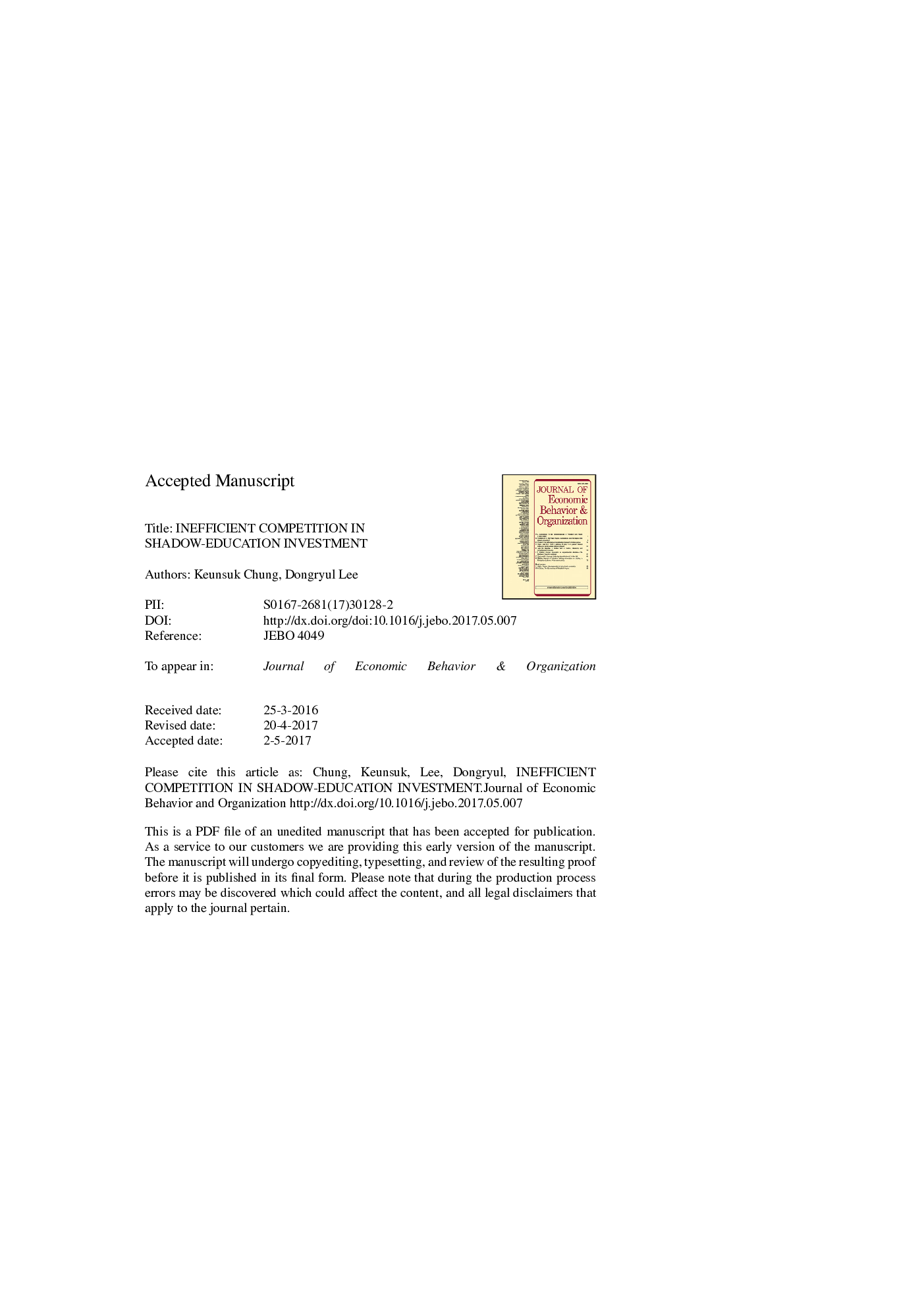| Article ID | Journal | Published Year | Pages | File Type |
|---|---|---|---|---|
| 5034524 | Journal of Economic Behavior & Organization | 2017 | 32 Pages |
Abstract
We investigate how inequalities in wages, productivity and education affordability determine individuals' educational efforts as they compete for premier jobs. Extending Tullock's (1980) contest-theory framework with endogenous returns, we first find that competition for better-paying jobs can result in social inefficiency in the form of excessive educational efforts. Second, a widening wage gap intensifies the effort competition, which induces inefficiency with higher likelihood when the returns to education effort diminish too quickly. Third, when one player's productivity improves relative to the other's, the benefitting player is encouraged to exert more effort, while his opponent tends to be discouraged to do so. The larger share of social inefficiency is carried by the less productive player. Fourth, when educational effort becomes more affordable to one player compared to the other, competition increases efficiency only if the change favors the more productive player. In the opposite case, social inefficiency increases. In both cases, the less productive player again bears the larger share of social inefficiency.
Related Topics
Social Sciences and Humanities
Economics, Econometrics and Finance
Economics and Econometrics
Authors
Keunsuk Chung, Dongryul Lee,
